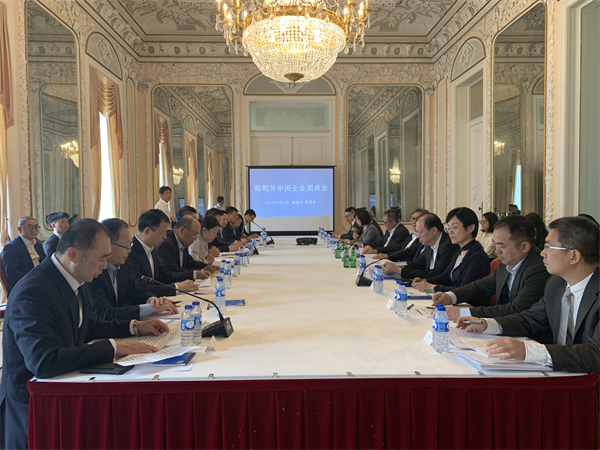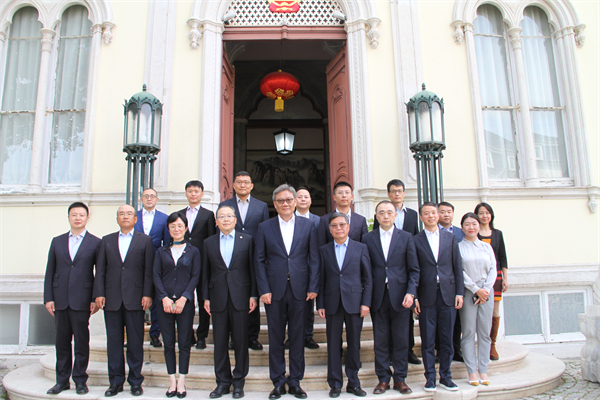Over 40 Chinese Companies Urge Government Action Against Rapidly Growing EU Protectionism
Minister Wang Wentao Highlights Growing Risks for Chinese Firms in Europe, Calls for Fair Competition and Cooperation from the EU
June 6, 2024, Brussels
More than 40 Chinese companies operating across Europe have voiced grave concerns about the EU's escalating protectionism. They have called on the Chinese government to address urgent issues, including the EU's anti-subsidy investigation into Chinese-made electric vehicles and Brussels's use of unilateral tools such as the Foreign Subsidies Regulation (FSR) that specifically targets Chinese enterprises.
These concerns were voiced to Chinese Commerce Minister Wang Wentao and senior ministry officials during their recent visits to EU member states, including Spain, Portugal, Greece, and Poland, beginning June 1st . In response, Minister Wang, speaking at a round-table in Lisbon on Tuesday, acknowledged the rising risks for Chinese firms in Europe. He called on the EU to commit to cooperating with China and ensuring a fair competitive environment for Chinese companies.
The Chamber has been present at the meetings where Chinese companies expressed their concerns. At Tuesday's round-table, representatives from sectors including finance, green energy, transportation, telecommunications, pharmaceuticals, and construction discussed the EU's growing protectionist measures. Chinese Ambassador to Portugal Zhao Bentang attended, and Xu Chen, the CCCEU Chairman, highlighted that the chamber's survey last year showed a continued decline in Chinese companies' overall assessment of the EU business environment, with 43% of respondents reporting a worsening situation over the past year.

Participants noted that recent months have seen the EU's market environment deteriorate further, marked by escalating trade protectionist measures. The EU claims these actions are necessary to address China's "unfair competition." However, Chinese companies argue that these swift measures have caused significant market barriers and impediments, urging China to take effective steps to safeguard their legitimate interests.
Wang refuted the EU's accusations of "unfair competition" from China, deeming them groundless. He stressed that fair competition is commonly acknowledged and essential to international relations, emphasizing that it should not be defined by a selected few countries. Some specific nations are implementing high tariffs, discriminatory subsidies, investment restrictions, and unilateral sanctions that contravene WTO rules, with the aim of excluding Chinese enterprises from their markets. This is not a fair competition at all.
"True fair competition should focus on self-improvement rather than undermining others, promoting openness, cooperation, and mutual benefit instead of excluding others and building “small circles," and adhering to multilateral rules with the WTO at its core rather than deliberately breaking them," Wang remarked.
He stressed that there is no fundamental conflict of interests between China and the EU, expressing China's readiness to develop alongside the EU through broader cooperation and fair competition. Wang urged the EU to participate in truly rules-based, fair competition and to foster collaboration between Chinese and European companies.
"China does not shy away from competition," Wang remarked. "We embrace healthy competition but stand firmly against any malicious attempts for suppression."
Before the round-table in Lisbon, Wang convened a meeting with Chinese businesses in Spain on June 1. Vice Commerce Minister Ling Ji organized similar gatherings in Greece on June 2 and Poland on June 5. During these sessions, over 40 Chinese companies operating in the EU communicated their concerns about the business environment to Chinese officials.


 Login
Login Login
Login CCCEU and Gunnercooke Successfully Host Webinar on CSDDD and FLR Compliance to Guide Chinese Businesses
CCCEU and Gunnercooke Successfully Host Webinar on CSDDD and FLR Compliance to Guide Chinese Businesses Cultivating responsible China-EU business leaders essential to tackling global challenges
Cultivating responsible China-EU business leaders essential to tackling global challenges



